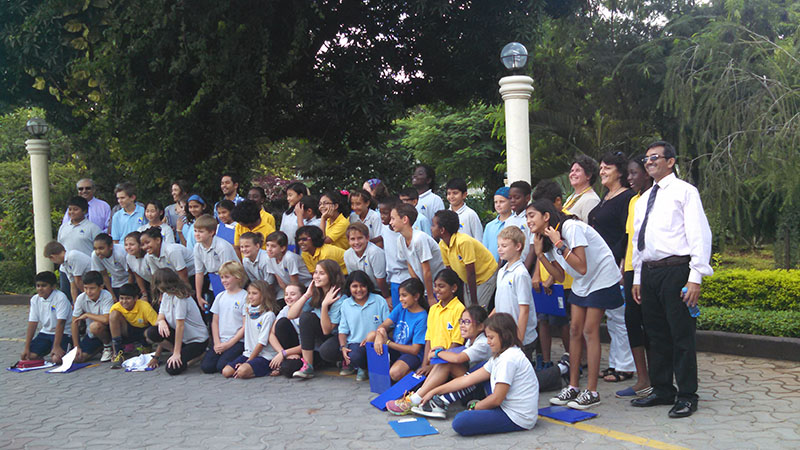At the request of the International School of Tanganyika (IST), an educational trip of students of Grade V was organized to visit Upanga Jamat Khana on May 17, 2016. Some 70 students, representing a diversity of various faiths and beliefs along with their teachers attended as part of their curriculum on Beliefs and Values. The visit was made possible with the support of different institutions of the Jamat, individuals and with the support of Mukhi Kamadia sahebs and Mukhiani, Kamdiani sahebas of Upanga Jamatkhana. The programme was facilitated by Alwaiz Navroz Lakhani, Management & Programme Liaison Officer at the Aga Khan Development Network (Tanzania), Dr. Amin Rehmani, Director of Academic Affairs, ITREB for Tanzania, Shemina Bhojani, STEP teacher Shaifa Bhanji and a volunteer Zahra Alidina.
The programme began by welcoming the guests into the social hall, followed by a brief talk by Dr Rehmani on ‘who we are’ introducing who the Ismailis are and what they believe in as Shia Imami Ismaili Muslims. This was followed by a few slides from Alwaiz Navroz Lakhani summing the talk very succinctly. The kids were then taken to the prayer hall. The teachers and students were made aware of our perspectives on Islam and our Tariqah in particular. Kids asked smart questions which were responded by Alwaiz Navroz and Amin Rehmani. A presentation on AKDN, its outreach and impact was shown by Al Waiz Navroz. It was well received and created an awareness that we follow perennial value of helping humanity in different ways and how many people we impact through AKDN globally. The children visited the library where Zahra briefed them about the books and usage of the library and the classroom. The visitors thoroughly enjoyed it. A group photo session took place at the end. The teachers showed keen interest in coming back next year with grade V students. They were particularly interested in knowing that we give equal opportunities to women who participate fully in the practice of faith as well as in other spheres of community matters. They also appreciated the fact that under the guidance of our Imam, we Ismailis emphasize a balance between din and dunya to improve one’s quality of life and also of the humanity at large through the network of AKDN institutions. This was an excellent ‘outreach’ activity, in making the faith of Islam and its Ismaili Tariqah understood as of peace, intelligence, ethics and spirituality.

